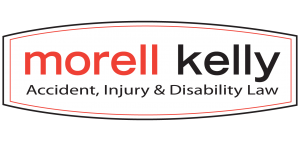Does Preparing for a Car Crash Lower the Chance of Being in One?
- March 20, 2015
- Lisa Morell
- No comments

I have been thinking a lot lately about the psychology of insurance. What is it: insurance is really something we pay for that we hope we won’t need. Almost as if by paying the premium we are hoping to buy insurance against the accident itself, as opposed to the damage that would be caused by the accident should we be unfortunate enough to have to make a claim on the policy. Therefore from the minute we buy the policy of insurance we set ourselves up to be disappointed by its limits should we ever have to make a claim because buying the insurance was supposed to protect us against having the accident in the first place. Is it any wonder then that so few of us concern ourselves prior to being in an accident with what our insurer will and will not pay for? Why would we care, we aren’t after all planning to be in an accident so we won’t ever need the coverage. And the longer we don’t have an accident the more unlikely we think it is that we will be in an accident. We lull ourselves into a false sense of security which actually makes it both, more likely we will be in an accident and that we will be more suspicious of others who claim to be injured in accidents. In the big picture the psychology of insurance has huge implications for the insurance industry and claimants alike. The insurers are endlessly protected by consumers who ignore the overly generous concessions that insurers get from governments to limit their exposure to risks that they supposedly insure and secure their profit margins. Then these same consumers sit on juries, inherently suspicious of persons claiming to be injured in accidents. This means these claimants are subject to a barrage of tactics and assessments designed to determine their truthfulness some would say worse than the trials the witches were forced to endure in Salem. These tribulations include such things as being subjected to surveillance (being spied upon) denigrated by so called experts who claim to have a crystal ball and predict a complete and full recovery and having their character maligned by implications they are cheats, malingerers, mental cases and liars. These measures further protecting the profit margins of the insurers. At the end of the day lets all carefully consider the word “accident” – an accident implies an unfortunate event which is no ones fault, it just happened. We all know though when 2 cars collide its always someone’s fault, 2 cars don’t just collide in a civilized society with a complex set of rules of the road designed to prevent a collision from happening, do they? At the end of the day even if you have insurance – remember, be careful out there. And don’t lie awake at night worrying about insurers going broke and people getting rich from car accidents making your premiums go up – 2 things that are really very unlikely to happen.
